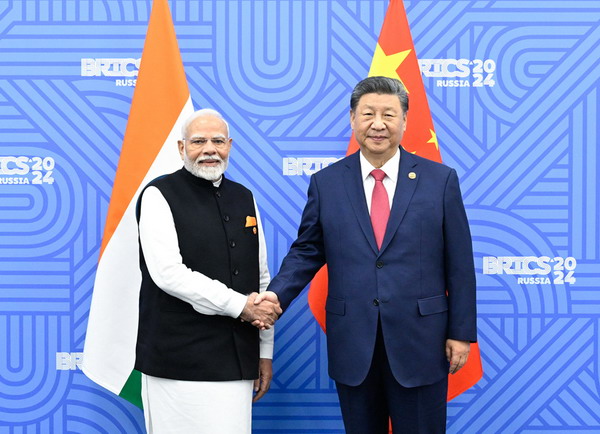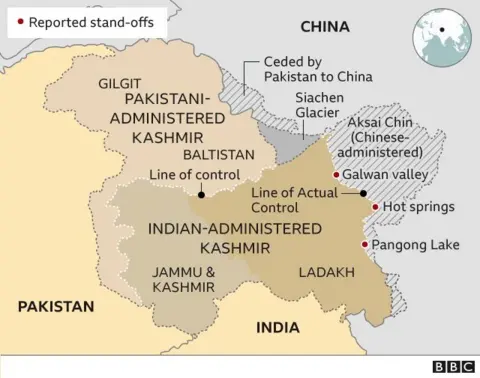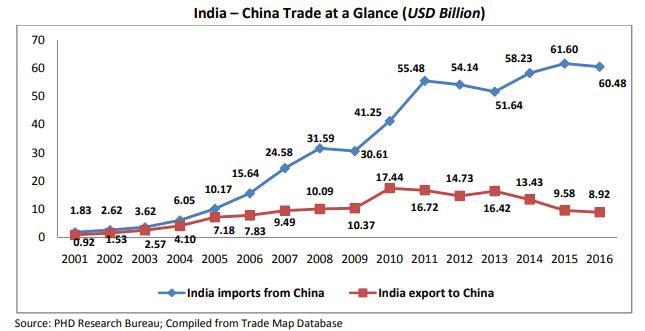As the world waits with bated breath, the highly anticipated meeting between Indian Prime Minister Narendra Modi and Chinese President Xi Jinping is finally around the corner. This landmark encounter has been making headlines for months, with diplomats, analysts, and policymakers from both countries working tirelessly behind the scenes to set the stage for a productive and meaningful discussion. The backdrop for this meeting is complex and multifaceted. Tensions between India and China have been simmering for years, with the two nations locked in a protracted standoff over their disputed border in the Himalayas. The situation came to a head in 2020, when a brutal clash in the Galwan Valley resulted in the deaths of several soldiers on both sides. Since then, relations have remained tense, with both countries engaging in a war of words and a series of military build-ups along the border. Despite these tensions, there are signs that both sides are willing to engage in meaningful dialogue. In recent months, there have been several high-level meetings between Indian and Chinese officials, including a meeting between the two countries' foreign ministers in March. These talks have focused on finding ways to reduce tensions and stabilize the border, with both sides agreeing to disengage troops and restore peace to the region. So, what can we expect from the upcoming meeting between Modi and Xi? Here are a few key areas that are likely to be on the agenda:
- Border Dispute: The two leaders are likely to discuss ways to resolve the long-standing border dispute, including the possibility of a new agreement on troop disengagement and de-escalation.
- Trade and Investment: With China being India's largest trading partner, the two leaders may discuss ways to increase trade and investment between the two countries, including the possibility of a new free trade agreement.
- Regional Security: Modi and Xi may also discuss regional security issues, including the threat posed by terrorism and the situation in Afghanistan.
- Global Governance: As two of the world's largest economies, India and China have a significant role to play in shaping global governance. The two leaders may discuss ways to work together on issues such as climate change, pandemics, and economic development.

Background: A 7-Year Gap in Diplomatic Visits
Agenda for the Modi-Xi Meet
- Increasing Indian exports to China, particularly in the pharmaceutical and IT sectors
- Enhancing Chinese investment in India's infrastructure, including the development of industrial parks and logistics corridors
- Strengthening cooperation in the fields of science and technology, including joint research and development initiatives
- Deployment of troops and infrastructure development along the LAC
- Confidence-building measures, including increased communication and joint military exercises
- Addressing concerns related to terrorism and extremism, including the presence of terrorist groups in Pakistan
- Climate Change: India and China are among the largest emitters of greenhouse gases, and cooperation on reducing emissions and transitioning to renewable energy sources is critical
- Global Governance: The two countries may discuss ways to strengthen multilateral institutions and promote a more equitable global order
- Counter-Terrorism: Cooperation on counter-terrorism efforts, including sharing intelligence and best practices, is essential to combat the global scourge of terrorism

Expectations from the Meet
- Boost to Exports: The agreements are expected to provide a significant boost to exports, particularly in the manufacturing and services sectors. This could lead to increased economic growth and job creation in participating countries.
- Investment Inflows: The meet is also expected to attract significant investment inflows, particularly in infrastructure development and renewable energy projects. This could lead to improved economic infrastructure and reduced carbon emissions.
- Boundary Demarcation: One of the key expectations is the demarcation of boundaries, which could lead to a reduction in cross-border tensions and increased security cooperation.
- Joint Development Projects: The meet could also lead to the announcement of joint development projects, such as infrastructure development and resource extraction initiatives, which could foster greater cooperation and trust between nations.
- Shift in Regional Dynamics: The meet could lead to a shift in regional dynamics, with participating nations potentially forming new alliances and partnerships that could challenge existing power structures.
- Increased Cooperation: On the other hand, the meet could also lead to increased cooperation and dialogue between nations, reducing the risk of conflict and promoting greater regional stability.

Challenges and Opportunities
- Infrastructure Development: China's expertise in building high-speed rail networks, roads, and ports can help India bridge its infrastructure gap.
- Manufacturing: India can learn from China's experience in manufacturing and explore opportunities for joint ventures and collaborations.
- Technology: Both nations can collaborate on emerging technologies like artificial intelligence, renewable energy, and biotechnology.
- Trade: India and China can work towards increasing bilateral trade, reducing tariffs, and promoting ease of doing business.
- Diplomatic Engagement: Regular diplomatic engagement and dialogue can help build trust and resolve conflicts.
- Economic Cooperation: Strengthening economic ties can help reduce tensions and create mutual interdependence.
- Cultural Exchange: Promoting cultural exchange programs can help build people-to-people connections and foster greater understanding.
- Regional Cooperation: India and China can work together on regional issues, such as climate change, terrorism, and pandemics, to build trust and cooperation.

Frequently Asked Questions (FAQ)
What is the significance of Modi's first China visit in 7 years?
Reviving India-China Relations In a significant development, Indian Prime Minister Narendra Modi recently embarked on a historic visit to China, marking the first such trip in seven years. This visit holds immense importance as it signals a crucial step in reviving India-China relations, which have been strained in recent years. A Period of Tension The India-China relationship has been plagued by tensions in recent years, particularly along the Line of Actual Control (LAC). The 2020 Galwan Valley clash, which resulted in the loss of lives on both sides, was a major setback to bilateral ties. The subsequent standoff and military build-up along the LAC further exacerbated the situation. The tensions were further fueled by China's increasing assertiveness in the region, including its support to Pakistan on the Kashmir issue. A New Chapter Modi's visit to China marks a significant shift in the trajectory of India-China relations. The visit is seen as an attempt to reset the relationship, putting the past tensions behind and focusing on cooperation and mutual benefit. The two nations have been engaging in diplomatic efforts to resolve their differences, and this visit is a culmination of those efforts. Key Outcomes The visit has yielded several key outcomes, including:
- Agreement on Border Management: The two countries have agreed to maintain peace and tranquility along the LAC, and to prevent any further escalation of tensions.
- Boost to Trade and Investment: India and China have agreed to increase trade and investment, with China promising to address India's concerns on trade imbalance.
- Cooperation on Regional Issues: The two nations have agreed to cooperate on regional issues, including counter-terrorism and combating climate change.
- Cultural Exchange: Modi's visit has also led to an agreement on cultural exchange programs, aimed at promoting people-to-people contact and strengthening bilateral ties.
What are the key issues to be discussed during the Modi-Xi meet?
As the world watches with bated breath, the highly anticipated meeting between Indian Prime Minister Narendra Modi and Chinese President Xi Jinping is set to take place. The two leaders will convene to discuss a range of pressing issues that have been plaguing the bilateral relations between the two nations. Trade Tensions One of the primary areas of focus during the meet will be trade. The ongoing trade tensions between India and China have been a major concern, with India's trade deficit with China standing at a staggering $53 billion in 2020-21. The Indian government has been seeking greater market access for Indian goods in China, particularly in the pharmaceutical and IT sectors. Modi and Xi are expected to discuss ways to reduce the trade deficit and increase bilateral trade. Border Disputes Another critical issue that will be high on the agenda is the long-standing border dispute between the two nations. The Doklam standoff in 2017 brought the two countries to the brink of war, and since then, there have been several instances of military build-up along the Line of Actual Control (LAC). The two leaders will likely discuss ways to maintain peace and tranquility along the border, and may even explore the possibility of a new confidence-building measure to reduce tensions. Cooperation on Global Issues In addition to bilateral issues, the Modi-Xi meet will also focus on cooperation on global issues. As two of the world's largest economies, India and China have a significant role to play in shaping the global agenda. The two leaders are expected to discuss cooperation on issues such as climate change, terrorism, and pandemics. They may also explore ways to strengthen multilateral institutions such as the BRICS grouping and the Shanghai Cooperation Organization (SCO). Other Key Issues Some other key issues that are likely to be discussed during the meet include:
- Infrastructure Development: India has been seeking greater investment from China in its infrastructure development projects, particularly in the areas of railways and highways.
- People-to-People Ties: The two leaders may discuss ways to strengthen people-to-people ties between the two nations, including increased cultural and educational exchanges.
- Regional Security: The meet may also see discussions on regional security issues, including the situation in Afghanistan and the India-Pacific region.
- Counter-Terrorism: Modi and Xi are likely to discuss ways to strengthen counter-terrorism cooperation, particularly in the wake of the Pulwama attack in 2019.
How will the Modi-Xi meet impact regional geopolitics?
The recent meeting between Indian Prime Minister Narendra Modi and Chinese President Xi Jinping has garnered significant attention in the realm of regional geopolitics. As the two leaders of the world's most populous nations, their discussions are poised to have far-reaching implications for the balance of power in the region and India's relations with other nations. Regional Balance of Power The Modi-Xi meet is likely to influence the regional balance of power in several ways. Firstly, the meeting's outcome will determine the trajectory of the India-China relationship, which has been marked by tensions in recent years. A thaw in relations could lead to increased economic cooperation, which would have a ripple effect on the regional economy. On the other hand, a failure to reach a consensus could exacerbate existing tensions, creating an atmosphere of uncertainty in the region. Moreover, the meeting's outcome will also impact the dynamics between India and other regional powers, such as Japan, South Korea, and the Association of Southeast Asian Nations (ASEAN). A strengthened India-China relationship could lead to a shift in the regional balance of power, potentially altering the dynamics of existing alliances and partnerships. India's Relations with Other Nations The Modi-Xi meet will have significant implications for India's relations with other nations in the region. Here are a few key takeaways:
- India-Japan Relations: A strengthened India-China relationship could impact India's growing partnership with Japan, which has been driven by shared concerns over China's rising influence in the region.
- India-ASEAN Relations: The meeting's outcome will also influence India's relations with ASEAN, which has been a key component of India's Act East policy. A more conciliatory approach towards China could lead to increased economic cooperation with ASEAN nations.
- India-US Relations: The Modi-Xi meet will also have implications for India's relations with the United States, which has been keenly watching the developments in the India-China relationship. A more collaborative approach towards China could impact India's strategic partnership with the US.
- Global Economic Order: A strengthened India-China relationship could lead to increased economic cooperation, which would have significant implications for the global economic order.
- Global Governance: The meeting's outcome will also impact global governance, particularly in the context of multilateral institutions such as the BRICS grouping and the Shanghai Cooperation Organization (SCO).
- Regional Security: The Modi-Xi meet will also have implications for regional security, particularly in the context of counter-terrorism and non-traditional security threats.
Promoted
Massive ROI on Your Career: Resume Bundle for Only ₹99
A winning resume is worth thousands in salary. Our bundle of 4,400+ templates costs just ₹99. The ROI is massive.
🔥 Get Lifetime Access Now 🔥
